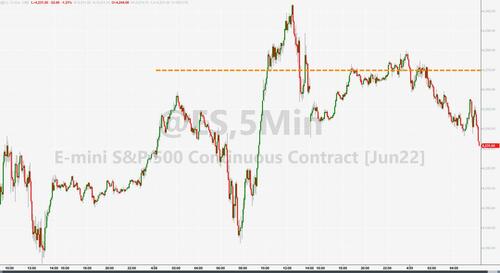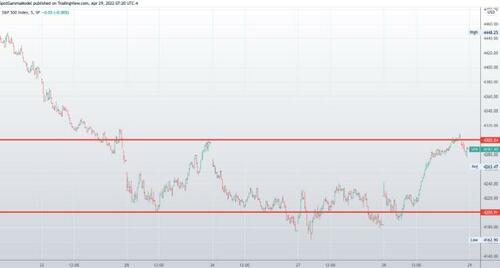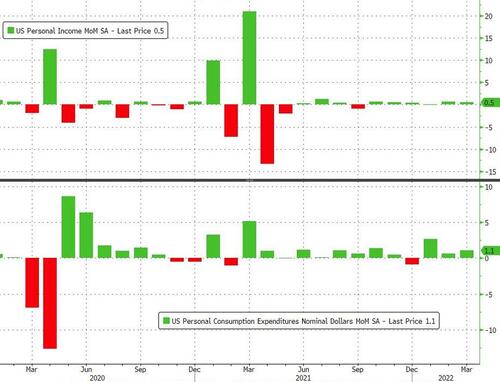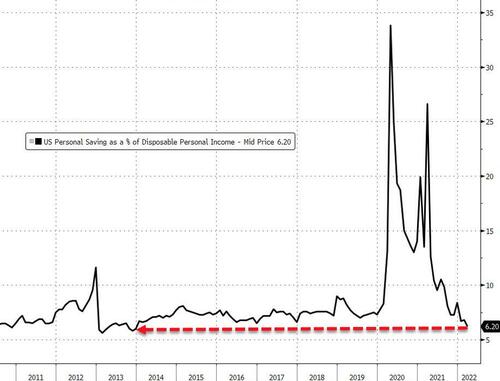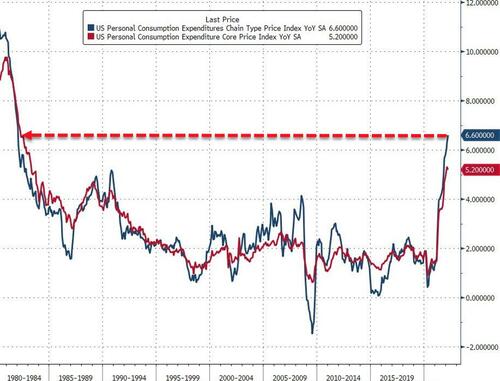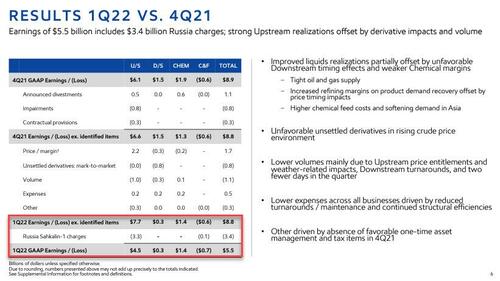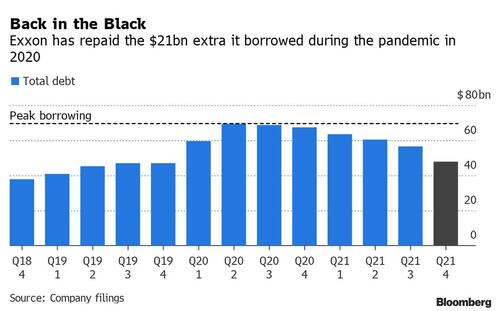Trump Was Right: Putin’s Gas Strategy Gives Germany Only Bad & Worse Choices
Remember this?
Trump claimed, during a testy breakfast meeting in 2018 with NATO’s Stoltenberg, that Germany’s dependence for its energy needs made it “totally controlled” by and “captive to Russia.”
It turns out – much to the chagrin of everyone who mock-horrored at the time – that Trump was right and as Bloomberg’s Javier Blas explains in detail below, Germany faces only bad, or worse, choices as Putin’s gas strategy becomes clear…
Chancellor Olaf Scholz must either pay for Russian gas on Vladimir Putin’s terms or face the painful economic fallout of a cutoff.
In 2018, German government officials war-gamed a massive natural-gas shortage. With the real thing looming, the lessons are sobering. Some hospitals, nursing homes and jails were forced to close; companies shut; livestock was left to die; hundreds of thousands of jobs vanished; rationing for households was imposed, according to the official account of the crisis-management exercise.
In just a few weeks, Germany will face the same dilemma that Poland and Bulgaria encountered a few days ago: pay for Russian gas on Vladimir Putin’s terms, effectively breaching European sanctions, or see the Kremlin close the valves.
Going “cold turkey” on Russian gas sounds like a brilliant political slogan, but the reality is untold economic damage for Germany. Let’s not sugarcoat it: The recession will be brutal. Reading the lessons of 2018 and talking to those who participated in it, I would not want to be in Chancellor Olaf Scholz’s shoes.
Falling short on the battlefield, Putin is still playing a brilliant hand in the energy market, exploiting the weaknesses of years of myopic European policy. Right now, Germany only has bad options – and worse options.
Both Berlin and Moscow are wielding the gas weapon – just at different speeds. Germany intends to stop buying Russian gas over time, perhaps by 2024, and in the meantime find extra supplies and build infrastructure to import liquefied natural gas from the U.S. and the Middle East. Russia is doing the opposite: wielding the weapon now.
By now, Putin has essentially written off its gas business with Germany. Either in four weeks or in 24 months, Russia knows that it will not sell energy to Berlin. So the Kremlin is forcing Scholz into some painful choices, with Putin turning some of the economic weapons deployed against his regime on his favor.
The Kremlin has told its European gas customers that if they want to continue receiving Russian gas, they have to pay for it via an account at Gazprombank, a state-controlled lender. The payment involves a two-step process with two accounts, one in euros, and one in rubles. The first step is a payment in euros; the second is its conversion into rubles for the client’s account. Only after that conversion, which technically touches the Russian central bank, is completed, the payment is considered fulfilled.
Germany – and France and Italy — never intended to impose an embargo on Russian gas now. The sanctions on the central bank were about stopping Putin accessing billions of dollars in hard-currency reserves, not about stopping gas payments. But Putin has turned the table: he’s using the EU sanctions now against them by forcing them to do business with the central bank in rubles.
If Berlin, Paris and Rome allow the payments to continue, they would be showing their own hypocrisy, opening a crack that would advance the Kremlin’s divide-and-conquer political strategy. They will also show that the EU is prepared to continue paying billions of euros each week to Russia, supporting the ruble — and subsidizing his military — in the process. Worse, it won’t be the last concession. Putin will exploit the gas weakness for more. Now is ruble payments; tomorrow may be about rolling back sanctions or military aid to Ukraine.
If Berlin and other capitals follow the letter of their own sanctions, payments can’t continue. But that means accepting gas sanctions they didn’t intend to impose – at least, not yet. It will mean enormous economic and social costs and could cause European public support for Ukraine to wilt. On Thursday, Scholz said Germany was ready for a halt supplies. “You have to prepare for it, and we already started this before the war broke out. We know what we have to do.”
It’s not just a short-term problem, either. If Germany manages over time to find replacements for the gas, it will be at a much higher price. The era of cheap-Russian gas fueling the German economy is over. German energy-intensive companies, like its chemical giants, could not compete in the global market. Germany will face painful choices about the future of its industrial economy.
In targeting first Poland and Bulgaria this week, Putin showed he’s not bluffing. Warsaw and Sofia don’t buy much Russian gas. Of the roughly 155 billion cubic meters the EU bought last year from Russia, Poland accounted for about 10 bcm, and Bulgaria for 3 bcm. The shutdown costs Russia very little in terms of revenue loss. But it sends a clear message to Germany.
Scholz faces a terrible dilemma. I have argued that European gas imports are hypocritical, financing the Kremlin military machine, and unsustainable, leaving the EU at the mercy of Moscow. But I’m writing these lines from Washington, where gas in plentiful and cheap, and it’s easy to take the high moral ground. Still, I don’t see how Scholz has any other option but to stop payments in late May and face the consequences. Time is up.
Tyler Durden
Fri, 04/29/2022 – 09:45
via ZeroHedge News https://ift.tt/a1WvAMy Tyler Durden


